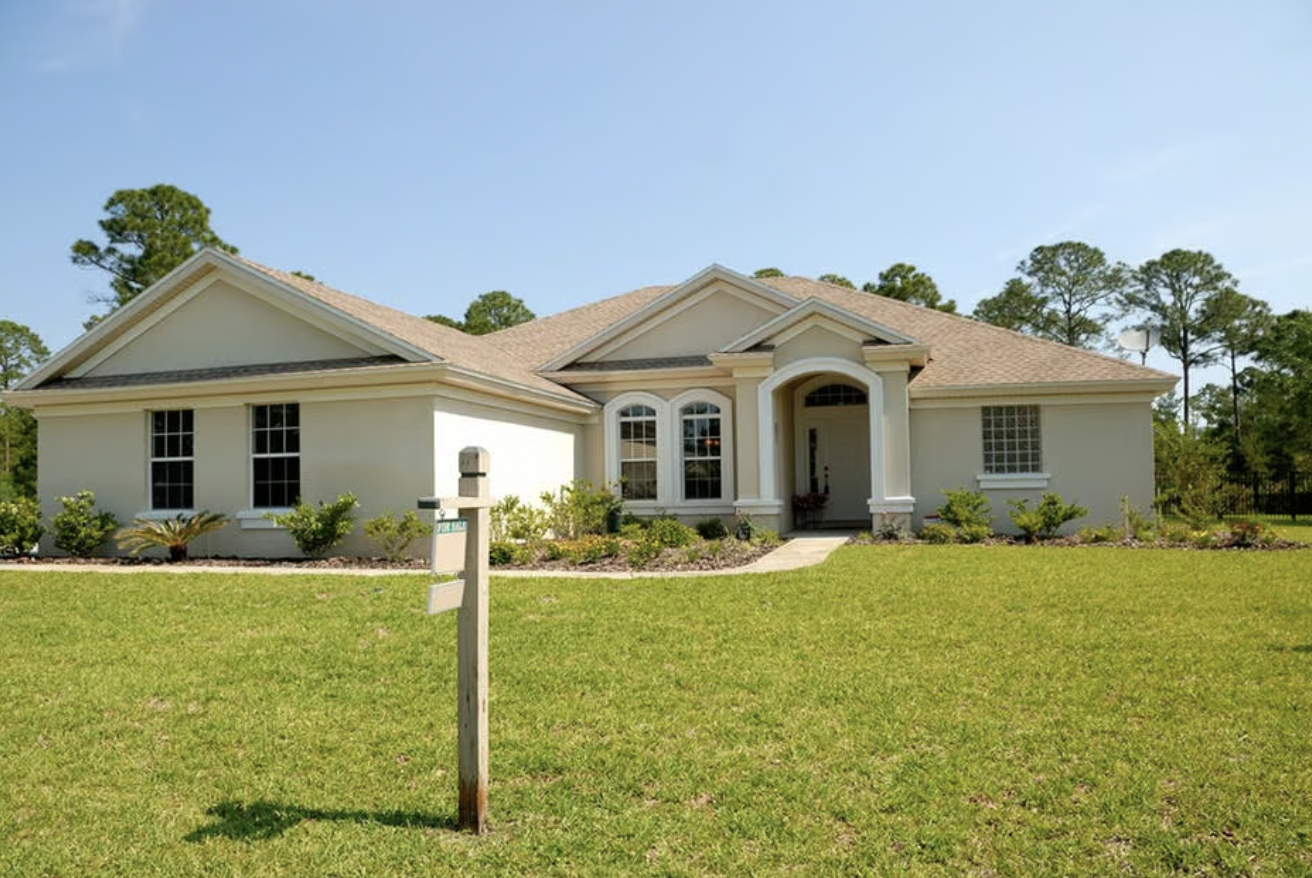After a booming seller’s market during the first year of the pandemic, many homeowners have been holding out for a similar market to list their home on the market. According to the experts, this isn’t coming any time soon. There are plenty of reasons to sell now and just as many reasons to wait.
Lingering high interest rates are one of the many factors impacting home sales in 2024. One option to get your home off the market fast is the priced to sell strategy. Is this the right strategy for you?
Read on for everything you need to know about pricing to sell, including pros, cons, and alternative options.
What Is a Priced to Sell Strategy?
When sellers imagine putting together a listing, one of the first things they think about is the asking price. In a bustling housing market, this involves gathering home value estimates, making a few value-add improvements, and setting an optimistic asking price. The goal is, of course, to get the most value out of the property as possible.
As the name suggests, a priced to sell strategy is designed to get your home off the market as fast as possible. You will still start with home value estimates, which are often listed on major listing websites like Zillow whether or not you choose to advertise them. Then, you set an asking price below value (i.e., at a “discounted” rate).
How much below value should you price a priced to sell home? This part is up to your discretion. Some sellers will go as low as 15% below value while others will stick to a more modest range of 3-5% below value.
Pros of a Below-Value Listing Price
Why do some sellers choose to use the priced to sell strategy? Here are the top benefits of setting an asking price below your property value.
Selling As-Is
If your goal is to maximize profits, you’re going to need to make some high-ROI upgrades to your home before listing it. This can take a lot of time and even when you pick your upgrades strategically, you may not see the return you expect.
When you’re establishing a selling price below value, you don’t need to worry about issues like old plumbing or minimal storage or foundation damage. Since you’re already offering buyers a discount, you’re free to sell your home as-is.
Attracting More Buyers
In today’s market, buyers don’t have the same buying power they had four years ago. High interest rates are taking a toll on home buying budgets, which can make it harder for sellers to generate interest. With a small pool of potential buyers, that “For Sale” sign can remain in your yard for months on end.
A low asking price has the potential to drum up more interest by broadening your buyer pool. When paired with a high-quality listing, you can make it clear that you’re offering a great deal that buyers should take advantage of ASAP.
Generating Competition
The priced to sell strategy, at its best, can lead to above-asking offers. Because an underpriced house has the potential to attract more buyers, it also has the potential to generate buyer competition.
Over the past several years, buyers have received the message that to secure a home, they need to act fast. If multiple buyers show interest in your home, those same buyers may try to outbid one another to close the deal.
Selling Faster
If you have plenty of time to sit on a listing, there’s no real reason to use the priced to sell strategy. Most sellers underprice their home because the most important factor in their sale is time.
Not only do more buyers and increased competition lead to faster sales, but underpricing gets rid of the need for drawn out negotiations and contingencies. If your buyer already gets a discount, they can use that discount to cover any improvement costs on their own.
Cons of a Below-Value Listing Price
The cons of trying to sell an overpriced house are self-evident, but what about the cons of trying to sell an underpriced house? Here are some of the pitfalls of listing your home below property value.
Losing Profits
It’s important to remember that the pros of a priced to sell strategy are best-case scenarios, not guarantees. Buyers are waiting with baited breath for mortgage rates to drop by the end of the year (though there are no guarantees there, either). In this state of fluctuation, no strategy is guaranteed to generate more interest or competition.
If your priced to sell strategy isn’t met with a bidding war, you’re going to sell your home below value. This is a risky strategy to use when your top priority is maximizing profits.
Raising Red Flags
In a digital world, most buyers look at online listings before they ever see a home for sale in person. Everything from your listing photos to your property description to your asking price will create a first impression that’s hard to shake.
Believe it or not, buyers won’t always see underpricing as an advantage. If other homes of similar size in your neighborhood are going for thousands more, buyers may form the impression that your property has hidden damage.
Fairing Badly Against High Inventory
The priced to sell strategy isn’t the right choice in all markets. It’s useful to perform some competitive market analysis before you land on a pricing strategy. If tons of other sellers are pricing to sell, you may not see the same benefits.
Another sign that it isn’t the right time to price to sell is when inventory is high. For sellers preparing to sell in the second and third quarters of 2024, high inventory isn’t much of a concern. Inventory in Memphis is on the rise, but it’s still tight.
Alternative Seller Strategies in 2024
If you’re trying to decide on the right pricing strategy, it’s useful to know all your options. Here are some of the top alternatives to pricing to sell.
Market Value Pricing
Market value pricing is what most potential sellers think of first when they imagine pricing their home. It’s the most traditional approach and one that real estate agents will encourage more often than not.
Market value pricing requires thorough competitive market analysis. You price your home based on its unique features, like square footage and amenities, in comparison to other homes on the market. The purpose is to strike a balance between profit and competitiveness.
Online-Oriented Pricing
As we mentioned earlier, real estate listings tend to create the first impression. The more eyes you can get on your listing (and the better your listing is), the more buyer interest you stand to generate. Thus, some sellers are gravitating toward online-oriented pricing.
This strategy is designed to optimize views based on the budgets buyers tend to set when searching for homes online. For example, you might consider prices in $25,000 increments (e.g., $150,000 or $175,000). Alternatively, you might price just below the nearest $100,000 to come in under common budget maximums (e.g., $199,900 rather than $200,000).
Seasonal Pricing
If you’ve got plenty of time to sell your home, consider the seasonal pricing strategy. This is similar to market value pricing with a heavier emphasis on buyer activity, which tends to fluctuate from one season to the next, than listing comparisons.
For example, the real estate market tends to ramp up in late spring and early summer, making it a good time to maximize your asking price. Because buyer interest tends to slow down in the winter, you would reduce your asking price in the winter if you’re using a seasonal pricing strategy.
Private Listing
Some sellers use a private listing strategy that forgoes the traditional market altogether. This has less to do with pricing and more to do with marketing.
Private listing involves marketing your home directly to specific buyers. For example, you may have a real estate agent who knows buyers that would want to buy your home before it hits the market. The advantage of a private listing is that you’re reaching motivated buyers right away, which can lead to a faster sale.
Cash Only Pricing
Some sellers may prefer to limit their offers to cash-only. A cash-only offer cuts out the typical involvement of a lender. Instead, buyers are able to pay full price upfront using liquid cash.
If you want cash-only offers, you may need to reduce your asking price. Cash-only offers tend to come from real estate investors, many of whom are willing to buy properties as is.
Looking to Sell a Memphis Home Now? We Can Help
The priced to sell strategy can work well for sellers who want to sell their home ASAP. In some cases, you may even get above-asking offers that are closer to your property’s actual market value. However, this isn’t a guarantee.
We Buy Houses in one of the leading cash-offer companies in Memphis. Thanks to our connections with real estate investors from around the globe, we’re willing to assess and buy your home in as little as seven days. Contact us to find out more about our process and how to sell your home for cash right away.







